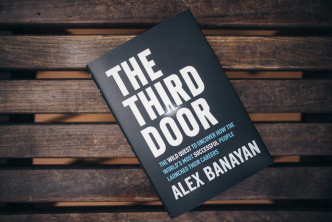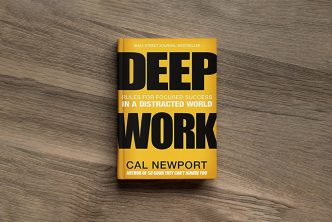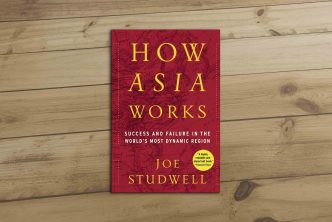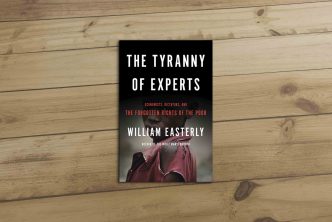BOOK REVIEW: Strangers to Ourselves(Discovering the adaptive unconscious) by Timothy D. Wilson.Belknap Press of Harvard University Press. 2002. Length: 273
By Vivian Orizu
Self-knowledge has been a central topic in psychology, starting from Sigmund Freud’s time with the efforts to know oneself, the limits of this knowledge of self, and the consequences of failures of self-knowledge. During the classical period, the emphasis was on the definition of self with respect to the id, ego and superego, and the application of various tools of psychoanalysis towards the understanding of the self at both conscious and subconscious levels. However, while self-knowledge has been a central focus in academic psychology and publications, there is a significant shift on emphasis in contemporary psychology towards understanding the self from the subconscious and unconscious level.
Timothy Wilson believes the contemporary explosion of scientific research on self-knowledge has started to paint a different picture from what has been obtainable in the past. He recognizes that individuals possess a powerful, sophisticated adaptive unconscious that is essential for survival in the world. This adaptive unconscious operates “efficiently out of our view and is largely inaccessible”, and as a result, there is a price to pay in self-knowledge. He further postulates that there is a lot about ourselves that we don’t know despite “painstaking introspection”. For instance, how do we discover non-conscious traits such as goals, feelings and emotions? How can these be scientifically studied and investigated especially using tools of psychoanalysis developed by Freud?
To answer the questions about self-knowledge, the author introduced the concept of adaptive unconscious, which posits an unconscious aspect of the self that adapts to the challenges of the individual’s environment. He drew substantially from cognitive and social psychology, Freud’s topological model and structural theory on the knowledge of the self. Drawing contrast from Freud’s theory of the ego, superego and Id, he concludes that the mind operates more efficiently by relegating a good level of sophisticated thinking to the unconscious. The unconscious exists by recognizing that consciousness has a limited capacity system. Research on adaptive unconscious suggests that “what we want to see is unseeable”. However, we can interpret and evaluate and select information from our unconscious mind that suits our purpose.
In chapter 3, the author explains the extent to which the power of decision making is conceded to the unconscious. He suggests that the more we rely on and empower the subconscious to influence our decision-making processes, the more the power of the mind will be set free for its proper workings. Cultivating intuitive decision-making processes can reinforce the quality of decision making. He compared the conscious and unconscious and identified their strengths and weakness.
In chapter 4, he tried to examine the knowledge of who we are and concluded that it is an illusion to believe that we are what we think ourselves to be. On the other hand, individuals need a thorough understanding of the self through self-introspection, which the external environment or others elements validates. It recognizes the dual nature of individual personality-the conscious and the adaptive unconscious.
In chapter 5, the author seeks to posit a rational foundation for individual behaviour and the motives that inform them. He seeks to answer the question, “why do we behave the way we do”. An understanding of motive provides a rational basis for people to understand themselves. It also shapes how information is processed and decisions made.
Chapter 6, explores another dimension of the adaptive unconscious that deals with the intangible aspects of emotions and feelings. He recognizes that feelings are very complex but constitute a significant dimension of individual behaviour, irrespective of its unmeasurable nature.
While chapter 6 explains “why we feel” as central in the adaptive unconscious, the “how we feel is explored” in chapter 7. The how we feel seeks to highlight the process of feeling, the biases underlining feeling, the sequential nature of feeling, how feelings define individual resilience, our ability for empathy, our cognition of pains, and affections for others.
In chapter 8, the author recognizes that while individual introspection is essential, the outcomes are usually subjective and self-narrative by highlighting only those positive natures the individual seeks to identify with while receding to the background those negative nature the individual fears to confront. Flash lighting and archaeological digging into the past are exercises most individuals hardly seek to undertake.
Chapter 9 focuses on hiking outward to know ourselves, and the author suggests that we arrive at the objective knowledge of ourselves by looking outward. Outward response and how we adapt to them provide more rational insights into our knowledge of the self. Information from outside can reinforce preconception about ourselves. For instance, knowing ourselves by how we react to outside circumstances or situations.
In chapter 10, the author examines series of essential outlines on how we observe our behaviour and modify or change them. We know ourselves by taking inventory of our behaviour and self-revelations by drawing inferences, reaffirming good behavioural and critical self-evaluation.
Conclusion
In my opinion, the book provides a contemporary insight into the knowledge of the self from a conceptual and theoretical perspective while proposing substantial practical guideline to encourage studies regarding the in-depth understanding of the self, particularly the concept of the adaptive unconscious. The adaptive unconscious provides a pragmatic foundation for understanding the self and applications that support how individual decisions are made within the context of the environment. I would recommend the book to any person responsible for human resource management and individuals responsible for making management decisions and a desire to understand the self. It also provides deep insights into shaping communication strategy to influence behaviour.
Vivian Orizu is a Research Analyst at Nextier SPD. She holds a B. Arts in Philosophy from Nnamdi Azikiwe University, Awka.







